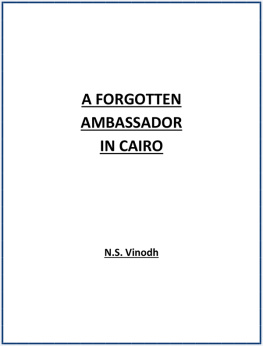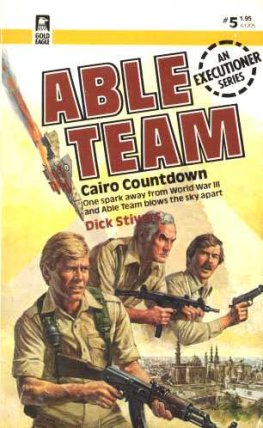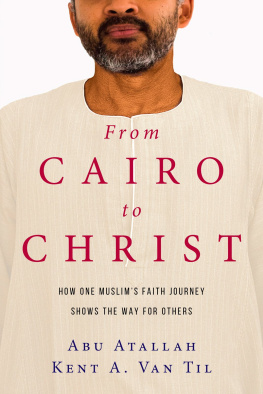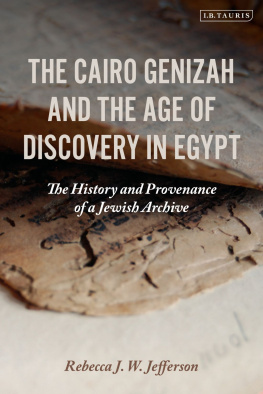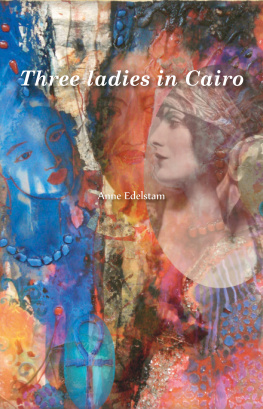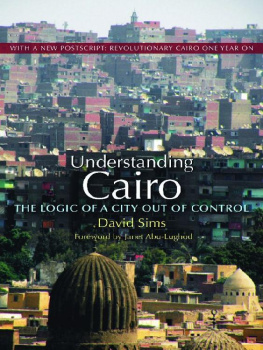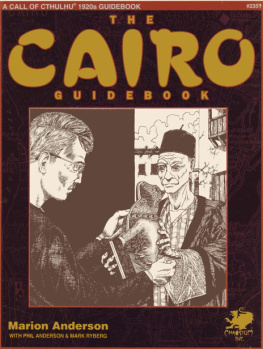N.S. Vinodh - A Forgotten Ambassador in Cairo
Here you can read online N.S. Vinodh - A Forgotten Ambassador in Cairo full text of the book (entire story) in english for free. Download pdf and epub, get meaning, cover and reviews about this ebook. year: 2021, publisher: S&S India, genre: Politics. Description of the work, (preface) as well as reviews are available. Best literature library LitArk.com created for fans of good reading and offers a wide selection of genres:
Romance novel
Science fiction
Adventure
Detective
Science
History
Home and family
Prose
Art
Politics
Computer
Non-fiction
Religion
Business
Children
Humor
Choose a favorite category and find really read worthwhile books. Enjoy immersion in the world of imagination, feel the emotions of the characters or learn something new for yourself, make an fascinating discovery.
A Forgotten Ambassador in Cairo: summary, description and annotation
We offer to read an annotation, description, summary or preface (depends on what the author of the book "A Forgotten Ambassador in Cairo" wrote himself). If you haven't found the necessary information about the book — write in the comments, we will try to find it.
A Forgotten Ambassador in Cairo — read online for free the complete book (whole text) full work
Below is the text of the book, divided by pages. System saving the place of the last page read, allows you to conveniently read the book "A Forgotten Ambassador in Cairo" online for free, without having to search again every time where you left off. Put a bookmark, and you can go to the page where you finished reading at any time.
Font size:
Interval:
Bookmark:

A FORGOTTEN AMBASSADOR IN CAIRO
A FORGOTTEN
AMBASSADOR
IN CAIRO
The Life and Times of Syud Hossain
N.S. Vinodh

Dedicated to the legacy and memory of Mahatma Gandhi
PART I
Prologue
IT WAS THE last week of March 2018. My wife, son, and I were returning to Cairo after a visit to the pyramids at Giza. We had some time before lunch and our affable guide Ahmed asked us if we would like to see the tomb of an Indian envoy. My curiosity kindled with visions of a tomb of a medieval Indian traveller doubling up as an emissary of an Indian king, I assented to Ahmeds suggestion. We drove on the traffic-choked Saleh Salem Street, the boulevard that heads to the airport. For a considerable distance the road cuts across the City of the Dead, so named because of the tens of thousands of graves and tombs that lie within. The City is a 6 km strip within which live half a million people amidst the tombs and monuments, a consequence of Cairos inability to provide its poor a better habitation. We turned off the main road into one of the by-lanes of the City of the Dead. After driving through a labyrinth of such lanes, most of them piled high with garbage on the sides, we stopped in front of a compound enclosed on all sides with high walls. The entry was through a green coloured gate under a rectangular arch on the eastern side. Ahmed had a word with the caretaker who opened the door for us.
Within the interiors of the compound stood a solitary, elegantly made marble tomb with epitaphs in Arabic and English. It read: Late Syud Hossain. Son of Late Nawab Syud Mohammad. Born in 1890 AD in Calcutta. First Indian Ambassador in Egypt. Died in 1949 AD
I recalled the name from a book I had read long ago, M.O. Mathais racy and borderline-salacious book, My Days with Nehru.
With my interest piqued, I read whatever I could find on Syud Hossain and a picture emerged of a man who was a significant but little known hero of Indias independence struggle. Born of an elite pedigree, dashingly handsome, erudite, articulate, a mesmerizing orator, an outstanding writer, and a secular patriot but with an equally prominent wild side, Syud Hossains noteworthy accomplishments went unrecognised perhaps because he had fallen foul of a powerful family. Much of the extant writings on him suffer from grievous inaccuracies, with prejudices, rumours, and the bawdy masquerading as facts. Sadly, Mathais derisive essay on Syud Hossain has become his most quoted curriculum vitae. Despite being a prolific writer and speaker, Syud was parsimonious in what he said about himself; there is no autobiography that he wrote, no biography that he authorised, no copious letters that he penned, and no self-congratulatory interviews that he gave. It may have been extreme modesty or an intense reluctance to reveal anything of himself.
Here was a man who was relegated to insignificance by his country and history, despite his immense contributions and achievements. A nationalist editor across three continents; a member of the sole delegation that met the British Prime Minister to plead for the Khilafat cause; the solitary unofficial ambassador for Indias independence movement in America for many years; a champion for the citizenship rights of Indians in the United States; a virtuoso in the English languageand the list goes on. Syud Hossain remained resolute in his principles despite the tribulations he had to endurea life of bachelorhood, an exile from his country, and sorrows he tried to assuage by taking to the drink. He lived in a Shakespearian tragedy.
This book is an attempt to tilt the scales, to portray one who deserved a higher claim to fame, someone who, despite the pulls of religious bigotry, remained steadfast in his loyalty to India and to its greatest son, Mahatma Gandhi. It is equally an attempt to narrate the events of his times, especially those of the first Indians who mass-migrated to America in the early twentieth century, and to rescue from our collective amnesia the more prominent among them whose battle against racial oppression paved the way for the second mass migration of Indians to America from the 1960s. Syud Hossain belonged to that generation of Indian leaders that was baptised into politics by Gandhi himself, a group that combined a formidable scholarship of their own culture with the sophistication of western liberalism, and an unwavering nationalism that rose above sectarian distinctions. They were the finest that India produced.
Early Years and Calcutta
THE BRITISH EMPIRE in India was at its zenith in the last two decades of the nineteenth century. Queen Victoria had celebrated the Golden Jubilee of her reign in June 1887 marked by a grand function in London where a host of Indian Maharajas and rulers paid obeisance to The Empress of India. The presence of the Maharajas of Baroda, Cooch Behar, Indore, Bharatpore and many others in their ostentatious Indian attire added lustre to the celebrations hitherto unseen in London. The event had been celebrated earlier with equal pomp in the Delhi Durbar of January 1887 presided over by the Viceroy, Lord Lytton. Even though Calcutta was the capital of the British Empire in India, the holding of the Durbar at Delhi was a symbolic proclamation that Queen Victoria was now heir to the Mughal throne.
Calcutta, as the capital of British India and the largest city in the subcontinent, attracted merchants, scholars, intellectuals, adventurers, and charlatans who flocked to the city to get a piece of the wealth offered by the civil services, the textile industry, or the immensely profitable trade in commodities such as tea and spices. The Bengal renaissance of the early nineteenth century embraced not merely the socio-religious but had also led to a dazzling outburst of Bengali literature personified by the towering figures of Bankim As yet unknown to the world were future leaders of the Congress such as Mohandas Gandhi (the future Mahatma) who had set sail in September 1888 to England to study to be a barrister, and Jawaharlal Nehru who was born a year later in 1889 at Allahabad.
It was in this milieu that Syud Hossain was born on 23 January 1888
Nawab Syud Mohammeds marital life was, however, steeped in tragedy. His first marriage at the age of eight to his aunts daughter was dissolved amicably before consummation. His second was to Shahzadi Khanam who unfortunately died due to a miscarriage within a year of the marriage. Syud Mohammed was devastated by this loss and it took him a few years to recover from the grief.
By this time, the fortunes of the family had dwindled, and Syud Mohammed had to forsake the life he loved by moving to Calcutta to find a job. He was twenty-two at that time, and was lucky to make the acquaintance of Nawab Abdul Latif Khan, who was so impressed with this young man from a noble family that he not only married off his daughter, Fatima Banu, to him but also helped him get a government job. Syud Mohammed, thereafter, converted himself to a Sunni, (the creed of his father-in-law), to which his descendants continued to adhere. Despite the handicap of a lack of formal tutelage, Syud Mohammed ultimately rose up to become the Inspector General of Registrations of Bengal, a very senior position, and one of the first Indians to reach that level.
Syud Mohammed and Fatima Banu had three children of whom the first, a girl, died at birth. Unfortunately, Fatima Banu too died within five years of their marriage when Syud Mohammed was a special sub-registrar at Birbhum in Bengal. Syud Mohammed then married Saleha Banu, the widowed younger sister of his late wife. In the twelve years of their blissful married life they had five children of whom Syud Hossain was the youngest. Saleha Banu died of cholera in May 1890 when Syud Hossain was just two years old. The loss of a mother when he was just an infant, and being the youngest of seven siblings (four brothers and two sisters of whom one brother and one sister were from his fathers previous marriage to his deceased aunt) perhaps made for a pampered childhood that had a bearing on his trait of rebelliousness.
Next pageFont size:
Interval:
Bookmark:
Similar books «A Forgotten Ambassador in Cairo»
Look at similar books to A Forgotten Ambassador in Cairo. We have selected literature similar in name and meaning in the hope of providing readers with more options to find new, interesting, not yet read works.
Discussion, reviews of the book A Forgotten Ambassador in Cairo and just readers' own opinions. Leave your comments, write what you think about the work, its meaning or the main characters. Specify what exactly you liked and what you didn't like, and why you think so.

